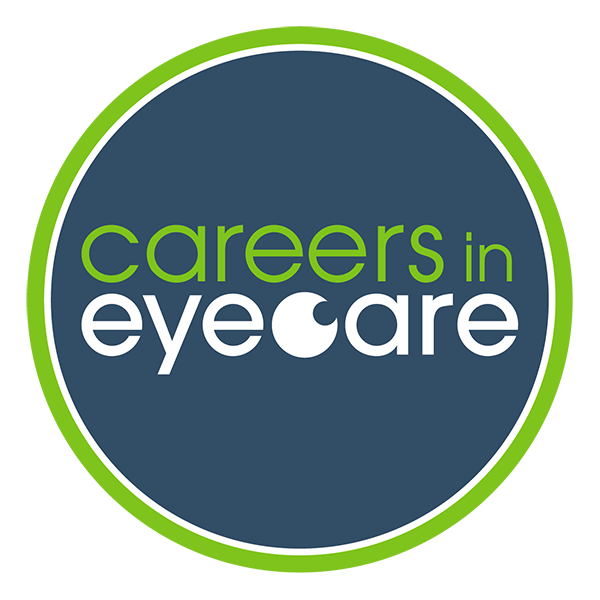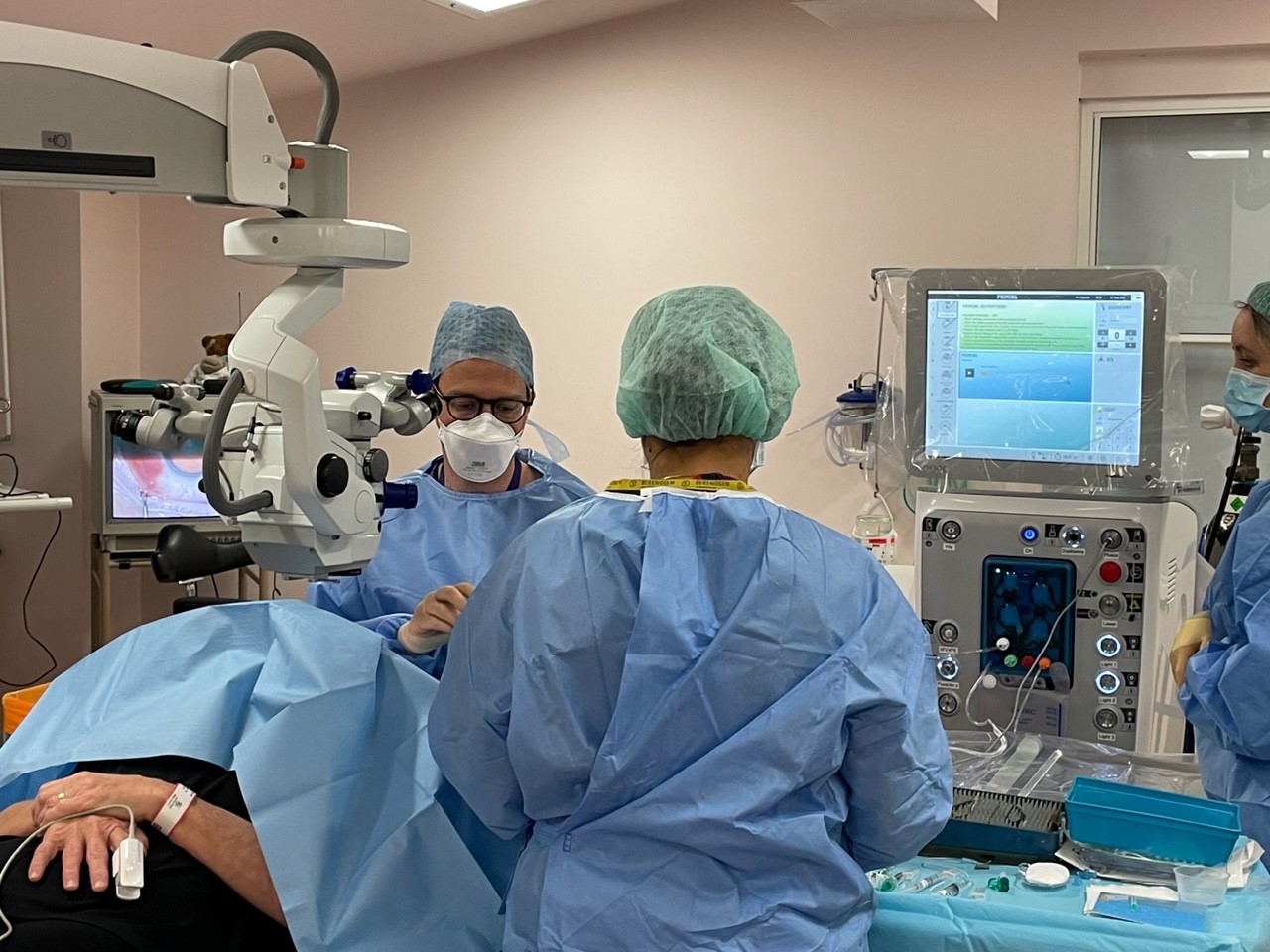Guy Negretti is a consultant eye specialist – an ophthalmologist – working across three NHS trusts, Moorfields, Barts Health and Surrey and Sussex Healthcare
How you start work – what do you do first?
Three mornings a week I’m in the operating theatre. I arrive on the ward at around 8am and see all the patients, answering any questions and reassuring them. Other mornings I am in the outpatient clinic, dealing with ophthalmic emergencies or in a specialist clinic.
What do you love about your job?
I’m an ocular oncologist – specialising in eye cancer – and a vitreoretinal surgeon, operating inside the eye. My patients, both adults and children, are often at high risk of losing their sight and sometimes even their life.
I can go through many different emotions from one patient to another. I love how rewarding my job can be. There can be no greater feeling than to stop somebody going blind or to save their life. I also love how varied my job is. No two days are the same.
I chose eye surgery before starting medical school. I spent a month in an ophthalmic hospital in Dar Es Salaam in Tanzania doing research and observing the clinic and theatre. I saw first-hand what a massive difference you could make as an eye surgeon.
What are the challenges?
There aren’t enough hours in the day. I am the tutor for the The Royal College of Ophthalmologists in one trust, responsible for the training of all our ophthalmology trainees. I also work as the fellowship director in another trust, responsible for four international fellows. I have two young children at home who I love spending time with. I have to make sure I am organised and plan well in advance to fit all my commitments in.
It takes a long time to train as a consultant surgeon. I did a three-year degree in Biological Sciences at Oxford followed by a graduate-entry medical degree at Cambridge (four years). I spent two years as a foundation doctor rotating through six different areas of medicine and surgery, including ophthalmology.
I did seven years of ophthalmology specialty training in London. I then had two sub-specialty fellowships in vitreoretinal surgery and ocular oncology at Moorfields in London, each for one year, followed by six months of ocular oncology fellowship at the Wills Eye Hospital, Philadelphia.
How do you wrap up each day and prepare for the next?
After a day seeing and operating on patients I have a lot of admin and emails. We had 2,121 patients referred to ocular oncology at Moorfields last year. All these need to be triaged – assessed – by the five surgeons working in the service so they can be seen in the right clinic within the right time frame.
If I’m operating the next day I study my operating list to ensure that I am as prepared as possible.
How can you start the journey into a career in eye surgery?
Eye surgery is an amazing career and I would highly recommend it. Getting some experience in your local ophthalmology department would be a good first step. If you enjoy it then you could ask to be involved in an audit or small research project. Entry into ophthalmology training is highly competitive so working hard throughout medical school to get good grades and extracurricular achievements will be very helpful.

